Driving Sustainable Investment: Spearheading the Future's Green Revolution
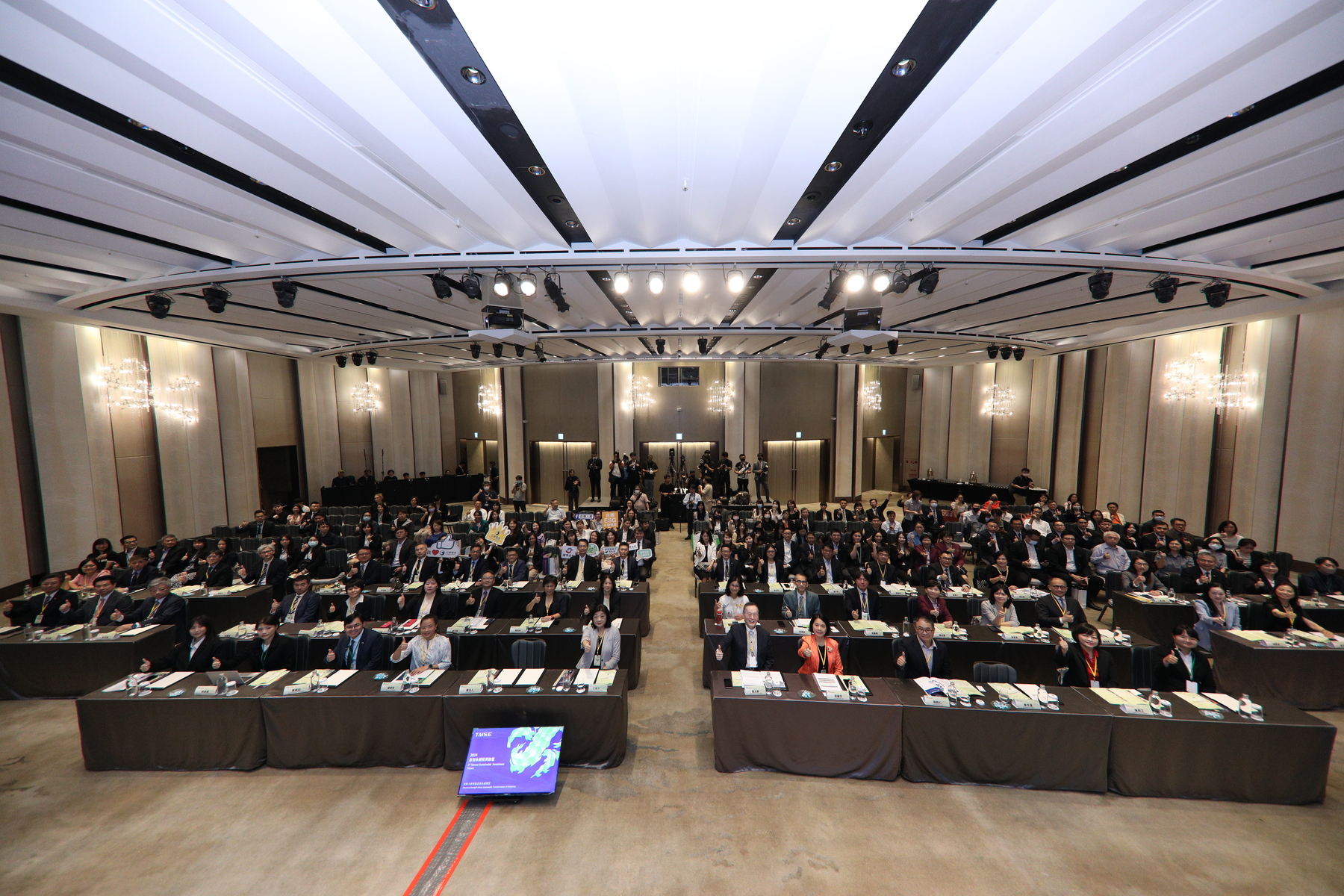
In 2024, the 4th Taiwan Sustainable Investment Forum Opening and Awards Ceremony (TWSIA) drew attendance of senior executives from 37 financial institutions, comprising 1 Chairman, 7 CEOs, and 21 Executive VPs.
With rising global environmental awareness, sustainable investment has become a key trend in international financial markets. The Taiwan Institute for Sustainable Energy (TAISE) emphasizes that sustainable investment is not only crucial to future economic development but also an essential means to achieve the Sustainable Development Goals (SDGs).
Growing Focus on Sustainable Investment
Sustainable Finance is an investment decision-making that incorporates Environmental, Social, and Governance (ESG) factors. This approach seeks both financial returns and positive impacts on environmental protection and social progress. Sustainable investment encompasses various financial products and services, including green bonds, Socially Responsible Investment (SRI), and impact investment.
Dr. Eugene Chien, Chairman of TAISE,citing data from investment consultants and think tanks, notes that global sustainable assets under management have reached US$2.8 trillion, with a 14% annual growth rate.
Taiwan's market shows similar momentum with 128 ESG-related funds totaling over NT$572.8 billion by end-2023, indicating sustained and growing interest in sustainable investment.
Dr. Eugene Chien states that while natural capital is fundamental to human existence and development, it still faces serious threats in recent years.Sustainable investment serves as a crucial mechanism for promoting economic and social development while protecting the environment. The financial sector should guide capital flows toward environment friendly industries and enterprises through sustainable investment, thereby driving industrial sustainable transformation.
Cathay Financial Holdings and Fubon Financial Holdings Lead as Top Winners
Prior to the awards ceremony, Andrea Gonzalez,CEO of Spainsif, and Masaru Arai, Chairman of Japan Sustainable Investment Forum (JSIF), delivered speeches via video conference.
Andrea Gonzalez highlighted the growing demand for standardized global documentation as private enterprises worldwide face increasing needs for compatibility between different frameworks and official regulatory compliance. She emphasized the importance of fostering dialogue, building consensus, and raising awareness about the importance of impact investing.
Masaru Arai noted that despite the 20% growth of global sustainable investment assets over the past two years amounting to US$30.3 trillion (excluding U.S. markets). Issues of greenwashing and ESG terminology abuse have emerged. He called for global partners to maintain commitments to transparency and integrity, while welcoming discussions and debates on the merits and drawbacks of sustainable investment.
At the Taiwan Sustainable Investment Awards (Taiwan SIA) ceremony held on the 21st, Cathay Financial Holdings achieved a grand slam by winning five "Institutional Impact" exemplary awards. Meanwhile, Fubon Financial Holdings won ten awards, becoming the financial group earning the most accolades in 2024.
The Taiwan Sustainable Investment Awards (Taiwan SIA) has entered its fourth year with impressive momentum, seeing entries surge by more than 30% compared to 2023 amid fierce competition. In a remarkable achievement, Cathay Financial Holdings and its subsidiaries hit their winning streak by securing exemplary awards in all five "Institutional Impact" categories - financial holding, life insurance, banking, securities, and investment trust.
Furthermore, Cathay Financial Holdings achieved three "Case Impact" gold awards for their innovative initiatives: pioneering an STO trading platform, developing smart warning indicators by using National Taipei University's ESG database, and creating a "Multi-stakeholder Engagement Ecosystem."
Fubon Financial Holdings, through its life insurance, securities, and investment trust ,won an impressive total of ten awards. Their achievements included one exemplary and two model awards in the "Institutional Impact" category, complemented by three gold and four silver awards in "Case Impact."
First Financial Holdings and its subsidiaries proved to be the standout performer among state-owned financial institutions, securing five awards: two model and two excellence awards in "Institutional Impact," along with one silver award in "Case Impact."
Sustainable Investment Brings Global Recognition to Taiwan
Following the awards ceremony, a summit focused on showcasing exemplary sustainable investment practices took place. Cathay Financial Holdings' Senior Executive Vice President of Economic Research Division,Shu-Fen Cheng, opened with insights on "Responsible Investment Experiences," detailing how the organization leverages ESG databases for investment evaluation and planning. She outlined their strategic funding of various sustainability initiatives to drive industry development, while highlighting the global trend for low-carbon investment.
CFO of E.SUN Financial Holding Company, Kuo-Jung Cheng followed with a presentation on "Accelerating Industrial Innovative Transformation," explaining their approach to aligning with international standards while developing E.SUN Financial Holding Company’s own sustainability roadmap. Moreover, every unit within the group has established sustainability-related business divisions, making sustainability an integral part of each employee's daily routine.
Yu-Hui Yu, Vice President of Fubon Investment Trust,completed the session with a comprehensive discussion on "Sustainable Investment," emphasizing the importance of nurturing ESG expertise to ensure smooth implementation of responsible finance.
Aaron Wei,Vice President of Fitch Ratings, presented case studies on natural capital, explaining its importance for market participants. Since the adoption of the Global Biodiversity Framework (GBF) at COP15, natural capital has gained increasing international attention.The challenge of protecting natural capital while pursuing national economic development has become crucial, gradually emerging as an investment target in fixed-income markets. Notably, ocean-related "blue bonds" have shown particularly rapid growth and attention.
Natural Capital: A Critical Component of Sustainable Investment
The afternoon session of the Sustainable Investment Forum featured two distinguished speakers: Dr.Chien-Fu Jeff Lin,Chief Economist of CTBC Holding, and Chairman of the Securities Investment Trust and Consulting Association,Tsung-Sheng Liu.They lead dynamic discussions and delivered valuable insights with scholars and experts focusing on two themes: "The Financial Sector's Impact on Natural Capital" and "Natural Capital Risk Assessment and Reporting Mechanisms."
In his presentation titled "Green Economic Development and the Financial Sector's Mission," Dr. Chien-Fu Jeff Lin examined the threats of climate change to environment, human survival, and national security, while emphasizing the importance of global green economic development.
The increasing significance of natural capital and technological applications is demonstrated by the growing number of enterprises joining the Renewable Energy 100 (RE100), which commits participants to achieving 100% renewable energy utilization by 2050.
Dr. Chien-Fu Jeff Lin articulated that green economics must incorporate external costs and benefits when addressing market failures and externalities. In his analysis, he referenced the Five Capitals Model, proposed by Forum for the Future, which includes:
1. Natural Capital
2. Human Capital
3. Social Capital
4. Manufactured Capital
5. Financial Capital
Natural capital, encompassing air, soil, forests, and rivers, constitutes the core of green development economics, serving not only as a foundation for production but also as a basis for life itself. According to the World Economic Forum's projections, proper conservation of nature and biodiversity could generate annual global revenues of US$10 trillion, while creating hundreds of millions of employment opportunities across sectors including agriculture, fashion, and consumer goods. Conversely, insufficient protection could result in an annual global GDP reduction of US$2.7 trillion starting from 2030.
Consequently, public sectors across nations play a crucial role in developing policies and incentive measures that encourage both consumers and producers to protect natural capital. The European Investment Bank, for instance, extensively invests in climate action and environmental sustainability while collaborating with other multilateral banks and trade groups to establish green investment standards. These efforts have significantly contributed to natural resource protection and the sustained development of the green economy. Dr. Chien-Fu Jeff Lin emphasized that the development of green economy requires international cooperation, policy support, and active participation from the financial sector to achieve sustainable development goals.
A Dual Approach: Sustainable Finance and Natural Capital Finance
Tsung-Sheng Liu shared that in the context of current global economic transformation, sustainable finance, climate finance, and natural capital finance have become crucial instruments for achieving a win-win situation between environmental protection and economic development.
Tsung-Sheng Liu observed that as national policies advance and international cooperation deepens, "sustainable finance" has gradually focused on climate and natural capital finance. In particular, issues raised at international conferences such as COP26 and COP27, including climate mitigation, climate adaptation, climate finance, and multilateral cooperation,have become the core driving forces behind the global development of new financial systems.
Tsung-Sheng Liu indicated that in practical implementation, "sustainable finance" includes three major considerations: environmental, social, and governance aspects. "Climate finance" focuses on reducing greenhouse gas emissions and addressing climate change impacts. "Natural capital finance" extends further, aiming to reduce greenhouse gas emissions while simultaneously mitigating other environmental risks, such as ecosystem degradation.
The loss of natural capital stems from multiple factors, including climate change, land use change, resource utilization, pollution, and invasive species. These factors not only alter natural conditions and ecosystems but also profoundly impact business models and operations. Taking the investment trust industry as an example, he enumerated various sustainable transformation measures, including climate change scenario analysis, information disclosure, sustainability report preparation, and carbon inventory. These measures help the investment trust industry adapt to new market conditions and promote the development of sustainable financial products and services.
Tsung-Sheng Liu encouraged enterprises to adopt nature-related risk management and disclosure frameworks (such as TNFD) early on to enhance value chain operational resilience and achieve harmonious development across economic, social, and environmental dimensions. This approach helps companies maintain leadership positions in global markets while facilitating the entire financial system's transition toward green, low-carbon operations.
Green Finance Takes Center Stage
Wrapping up the forum, Secretary General, Dr. Li-Fang Chou, presented several policy recommendations, includingemphasizing renewable energy and sustainable investment, standardizing sustainability reporting guidelines, promoting sustainable investment product development, and implementing sustainability education. She stressed that sustainable finance and natural capital development are fundamental cornerstones for achieving sustainable development.
Taiwan can establish a robust sustainable finance ecosystem only through strengthening corporate governance, enhancing financial institutions' sustainable practices, reinforcing government guidance and demonstration, and supporting industry sustainable transformation.
The Financial Supervisory Commission (FSC) of Taiwan issued "Green Finance Action Plan 3.0" on September 26, 2022,
This new plan helps banks and financial companies get on the same page about climate change. It shows them how to track their carbon footprint – both from their own operations and companies they invest in or lend to. The goal is to help the financial sector spot climate risks and opportunities while encouraging them to cut carbon emission for sustainable development.
An increasing number of Taiwanese enterprises are recognizing the significance of sustainable investment and taking actions. Corporate Social Responsibility (CSR) and sustainability reports have become essential vehicles for enterprises to demonstrate their achievements in environmental protection, social responsibility, and governance. Through transparent reporting and responsible conduct, enterprises can enhance their corporate image and contribute to sustainable development goals.
The significance of sustainable investment cannot be understated. TAISE (Taiwan Institute for Sustainable Energy), is committed to pushing the development forward and is calling for more investors and enterprises to jump on board.
Sustainable finance not only generates stable financial returns for investors but also facilitates social advancement and environmental protection, achieving a tripartite benefit for economy, environment, and society.
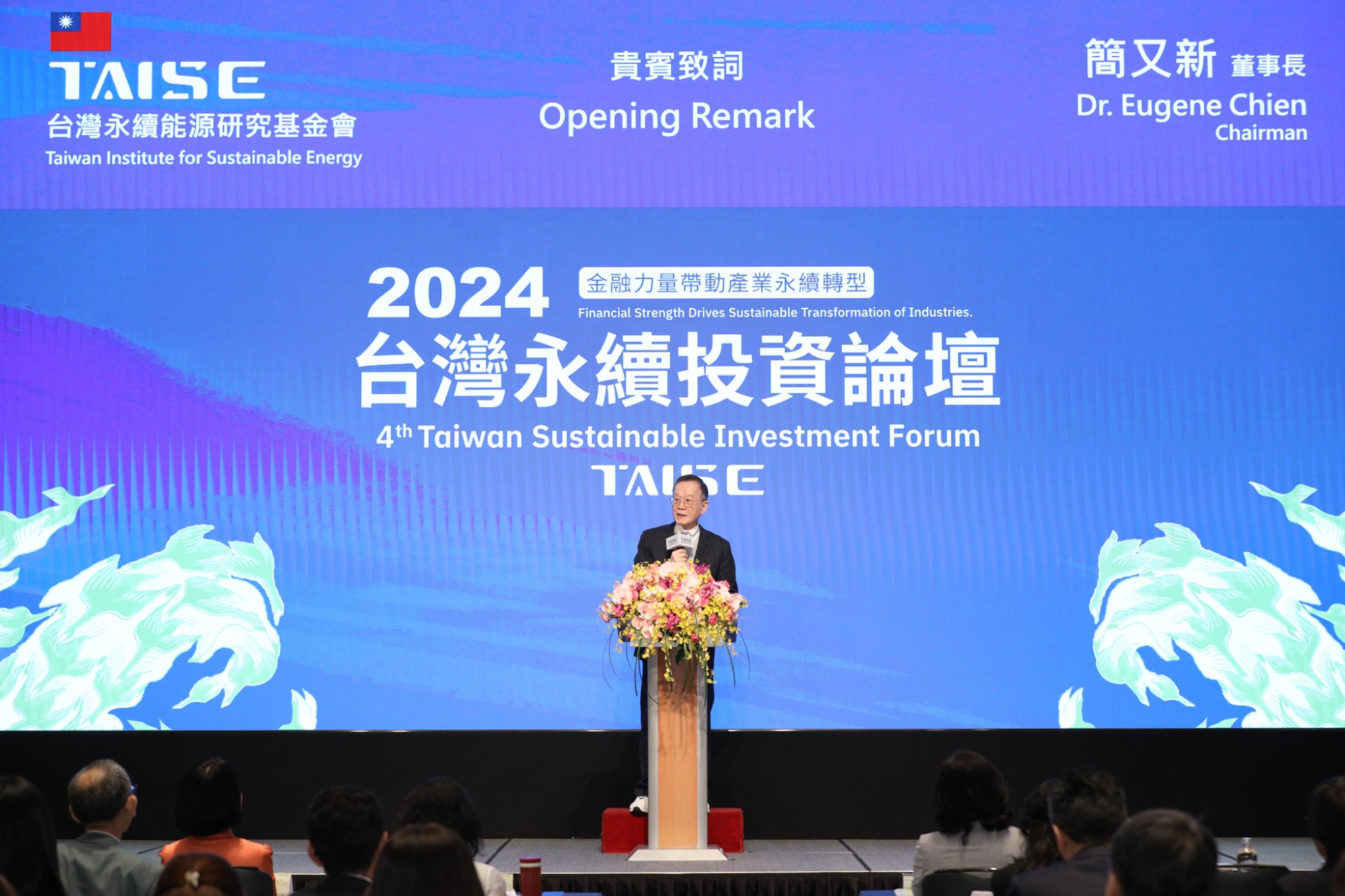
▲Dr. Eugene Chien, Chairman of Taiwan Institute for Sustainable Energy (TAISE), delivered remarks at the "Sustainable Investment Forum" on the 21st.
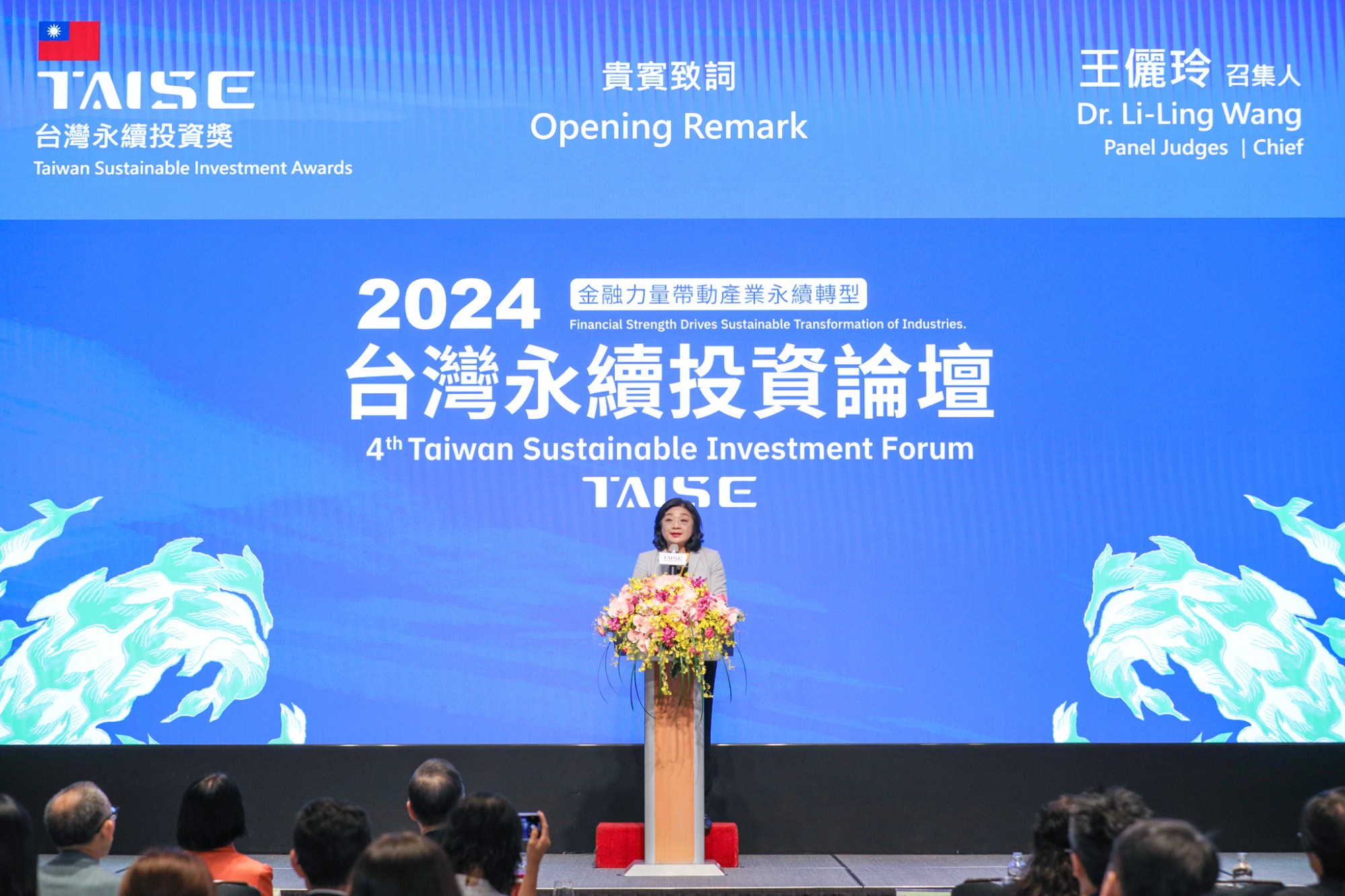
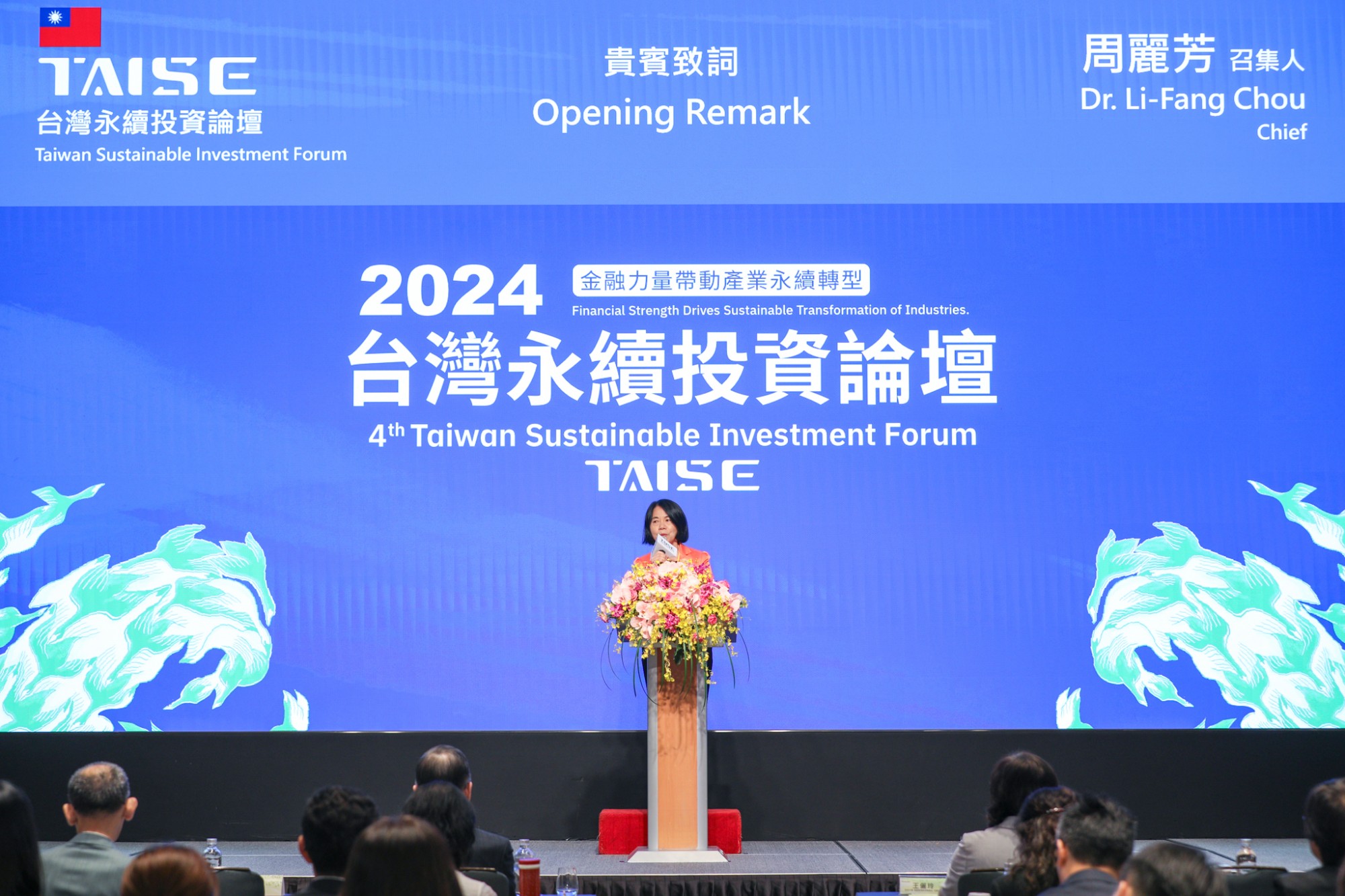

▲Dr. Eugene Chien (sixth from right), Chairman of Taiwan Institute for Sustainable Energy (TAISE), and Dr.Li-Ling Wang (sixth from left) photographed with this year's TWSIA Institutional Impact category award recipients.
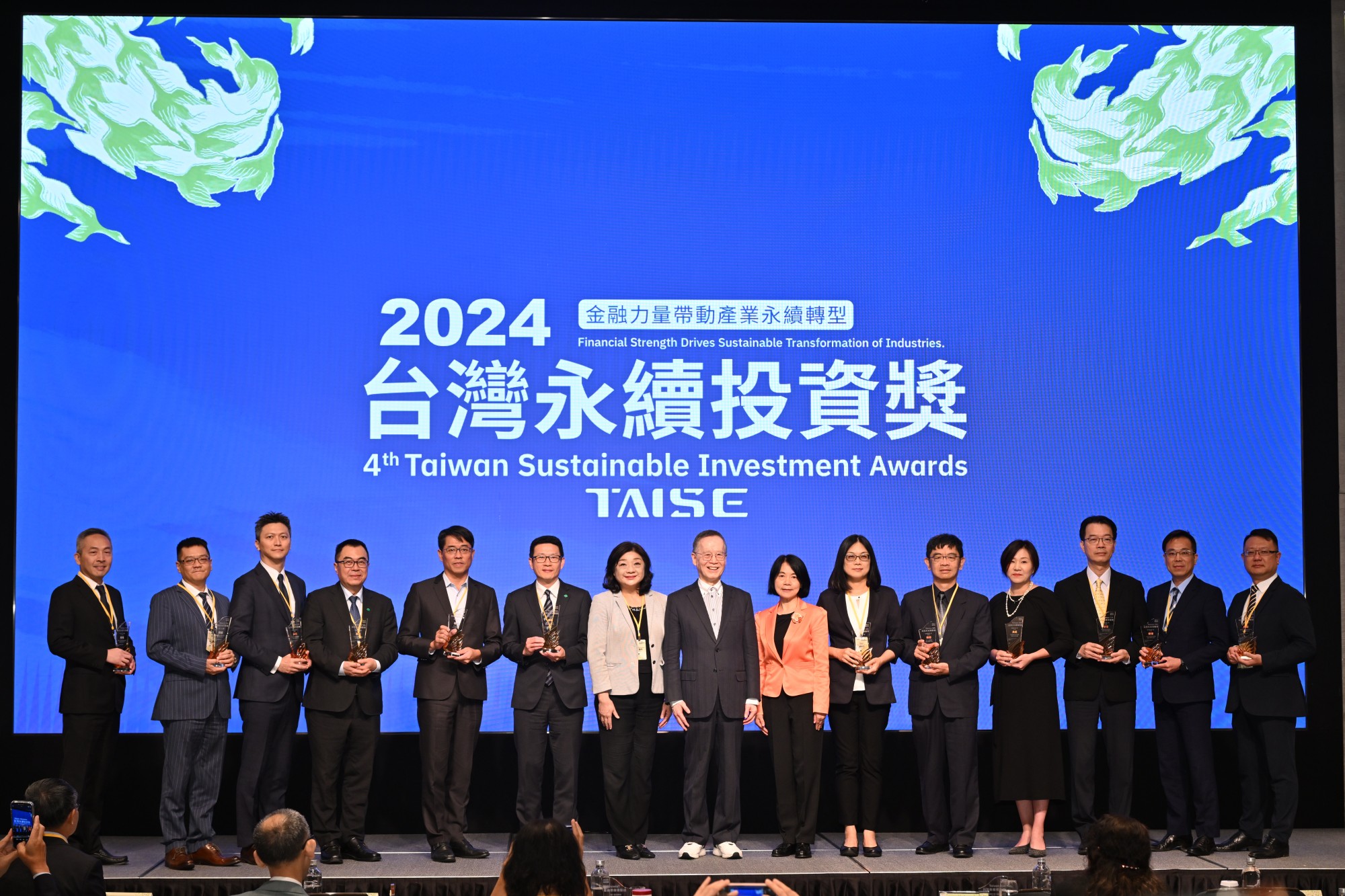
▲Dr. Eugene Chien (eighth from right), Chairman of Taiwan Institute for Sustainable Energy (TAISE), Dr.Li-Ling Wang,Chief Panel Judge (seventh from left), and Dr. Li-Fang Chou (seventh from right) photographed with this year's TWSIA Institutional Impact category award recipients.
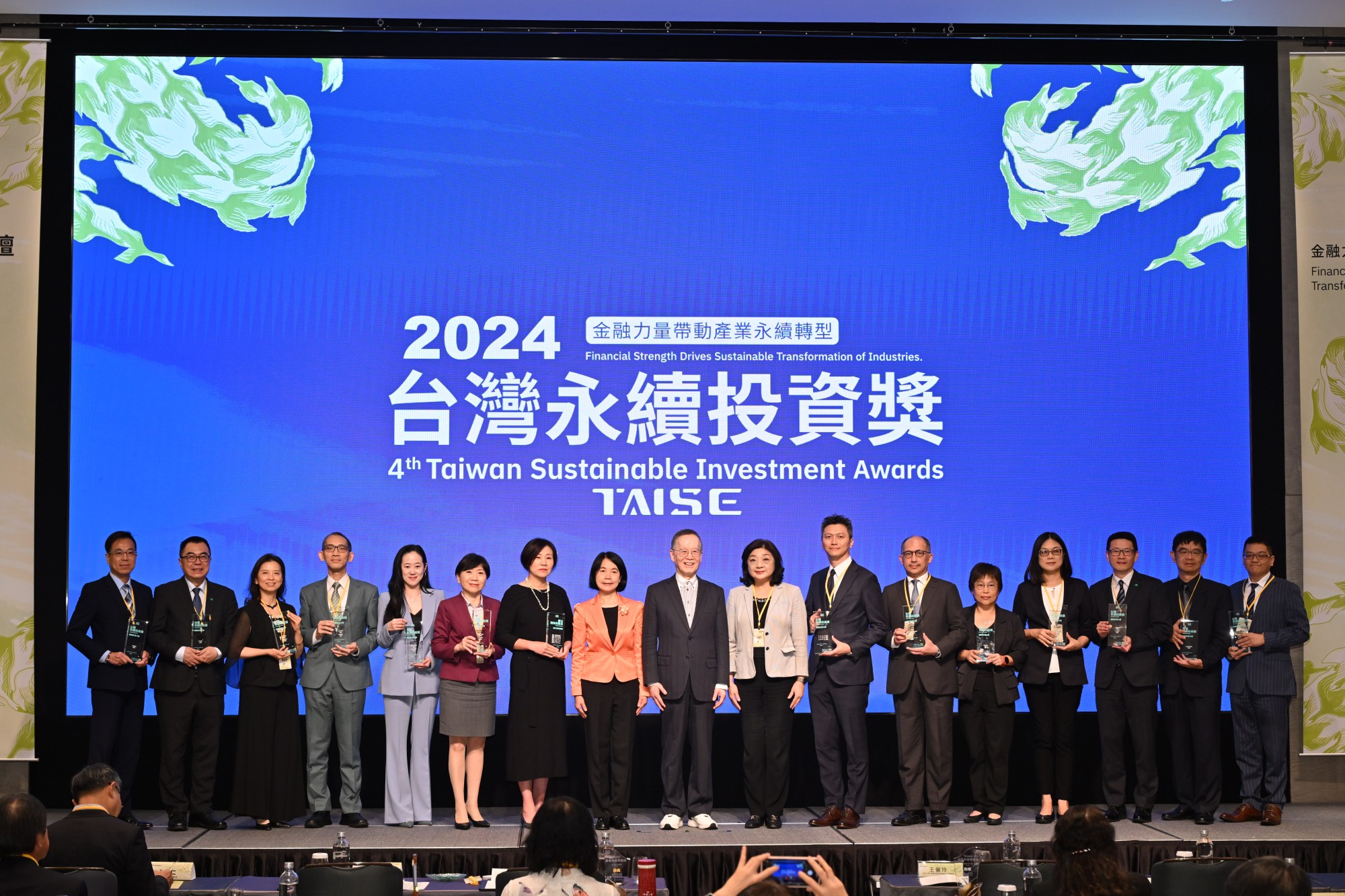
▲Dr. Eugene Chien (ninth from right), Chairman of Taiwan Institute for Sustainable Energy (TAISE), Dr. Li-Fang Chou (eighth from left), and Dr.Li-Ling Wang,Chief Panel Judge (eighth from right) photographed with this year's TWSIA Case Impact category award recipients.
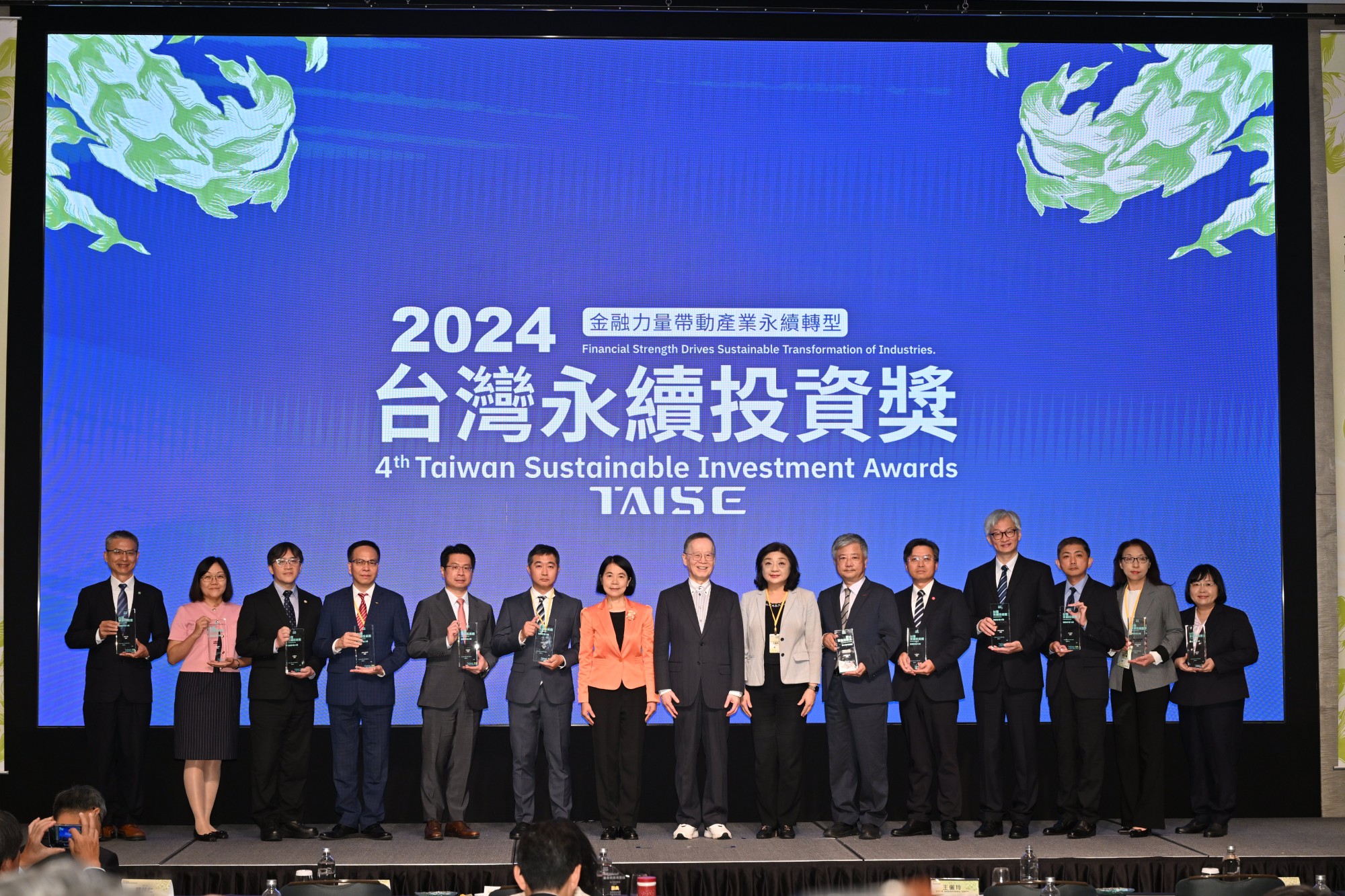
▲Dr. Eugene Chien (eighth from right), Chairman of Taiwan Institute for Sustainable Energy (TAISE), Dr. Li-Fang Chou (seventh from left), and Dr.Li-Ling Wang,Chief Panel Judge (seventh from right) photographed with this year's TWSIA Case Impact category award recipients.

